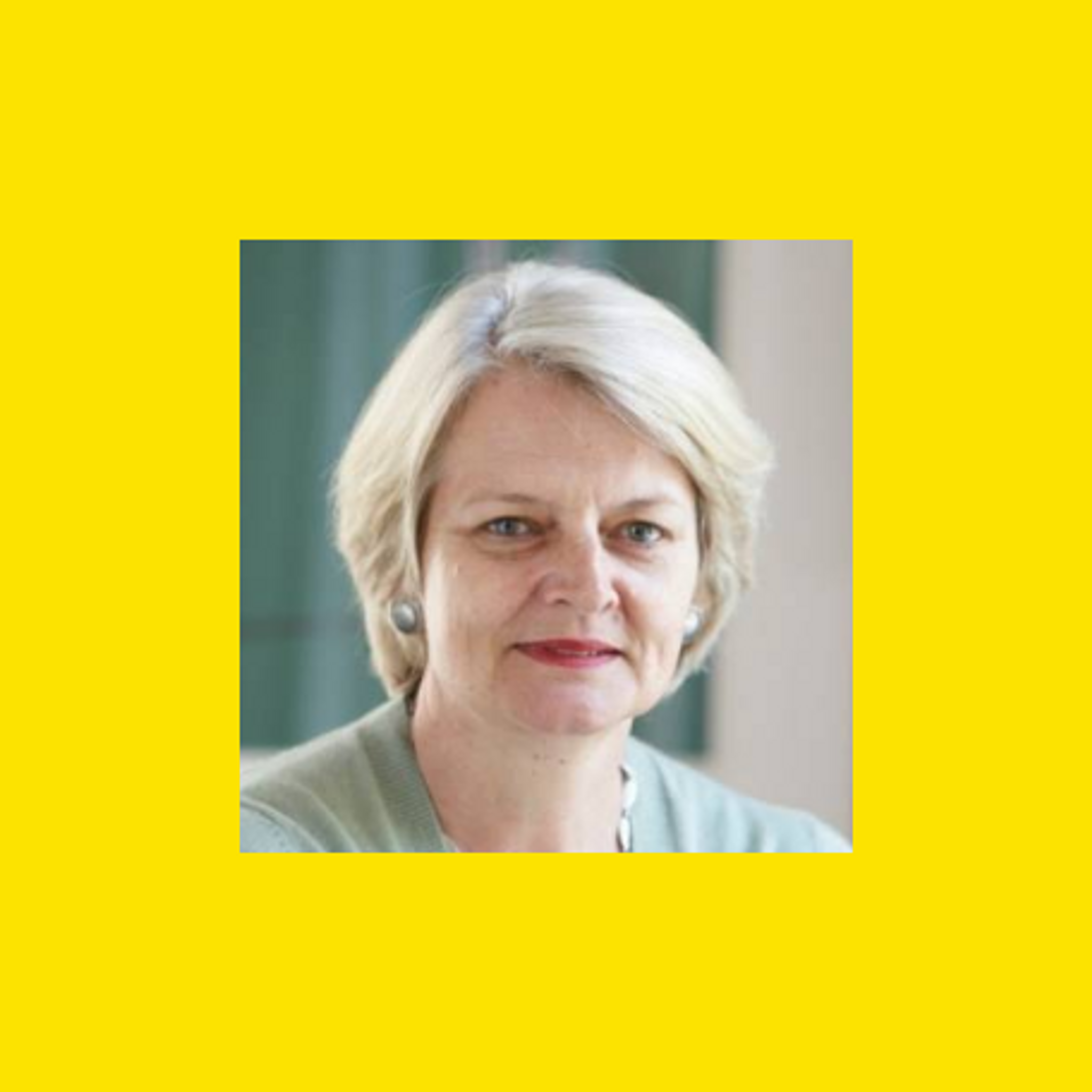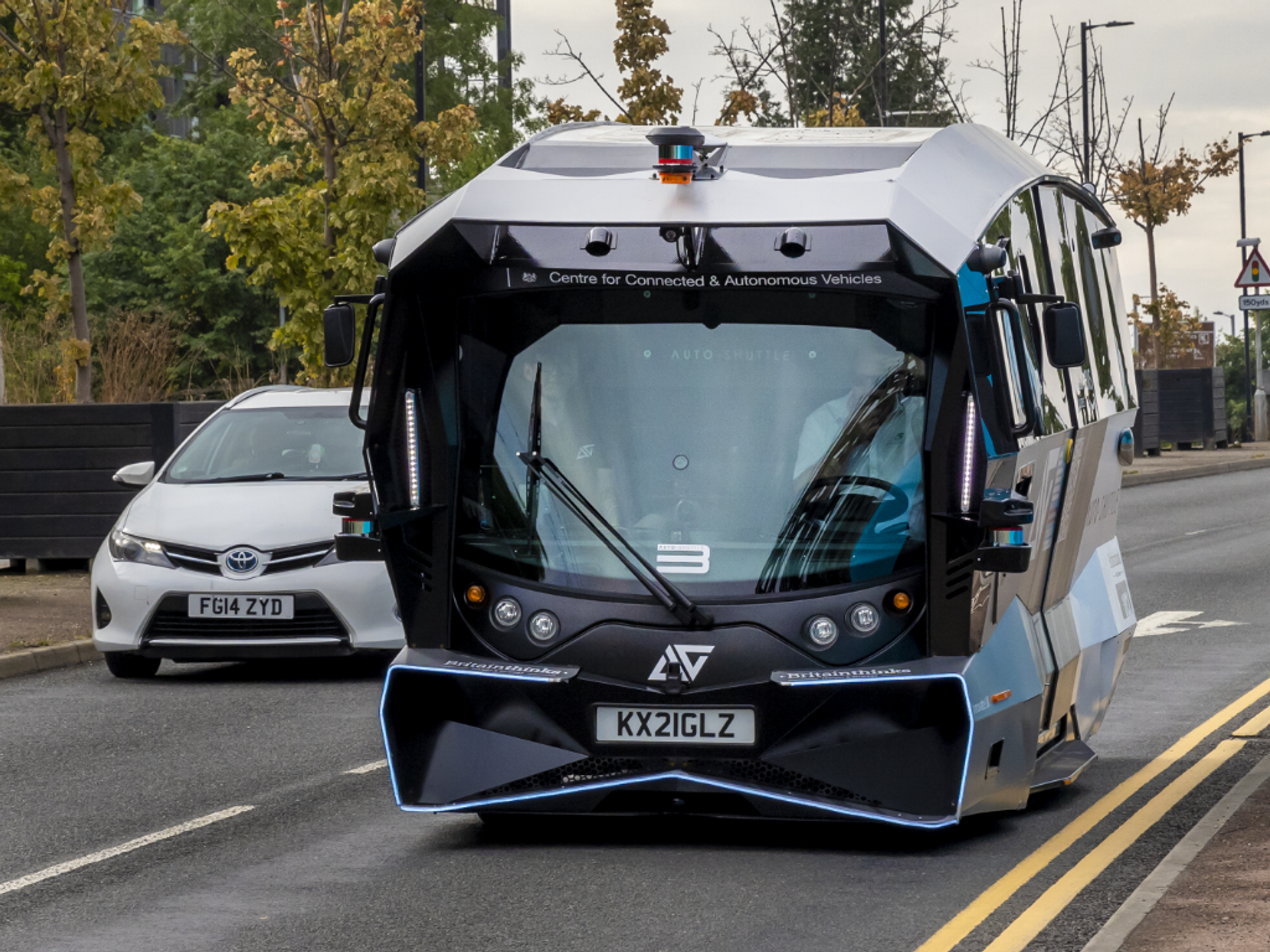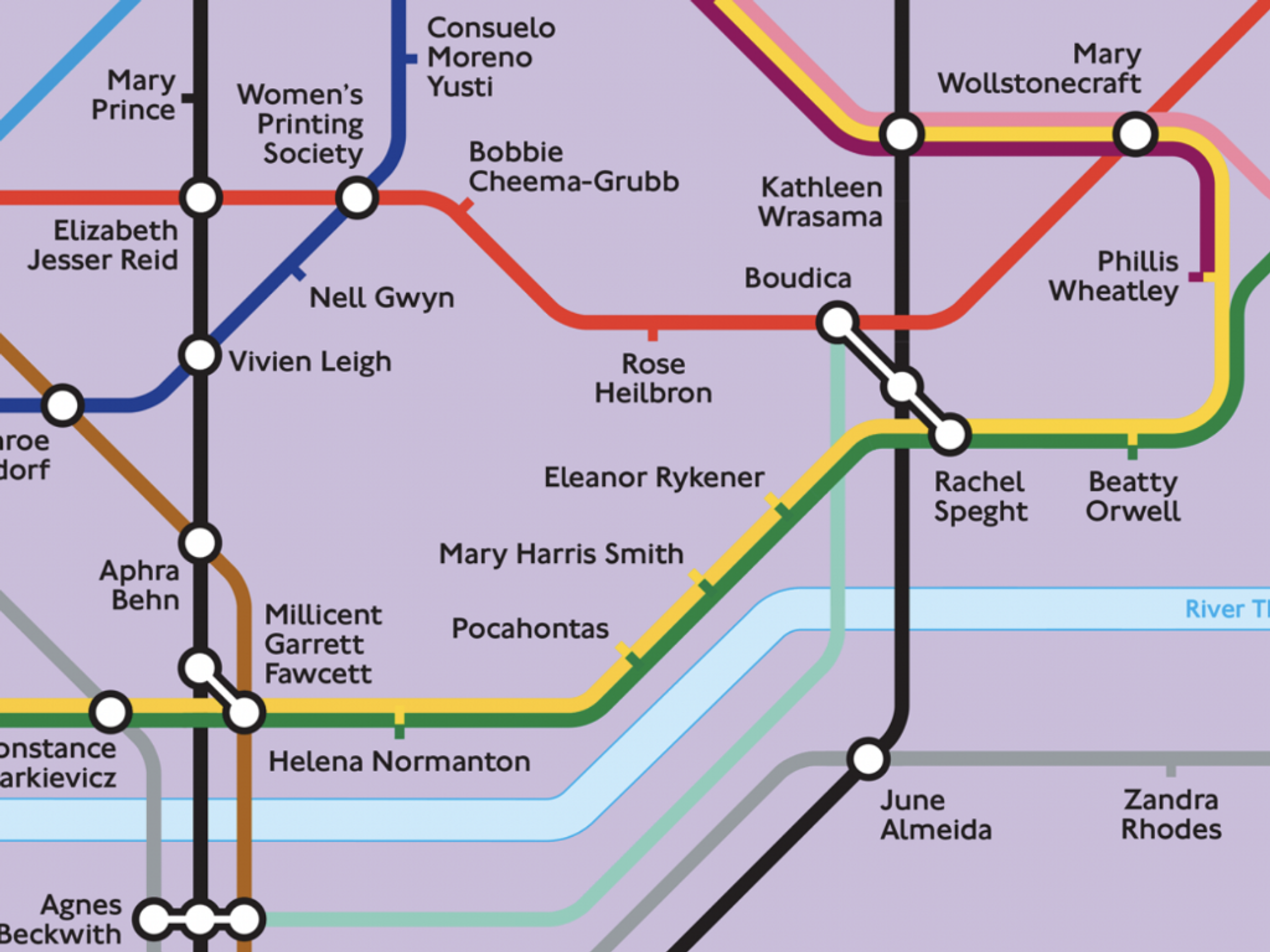Can gaming help us create a more equitable world for all species?
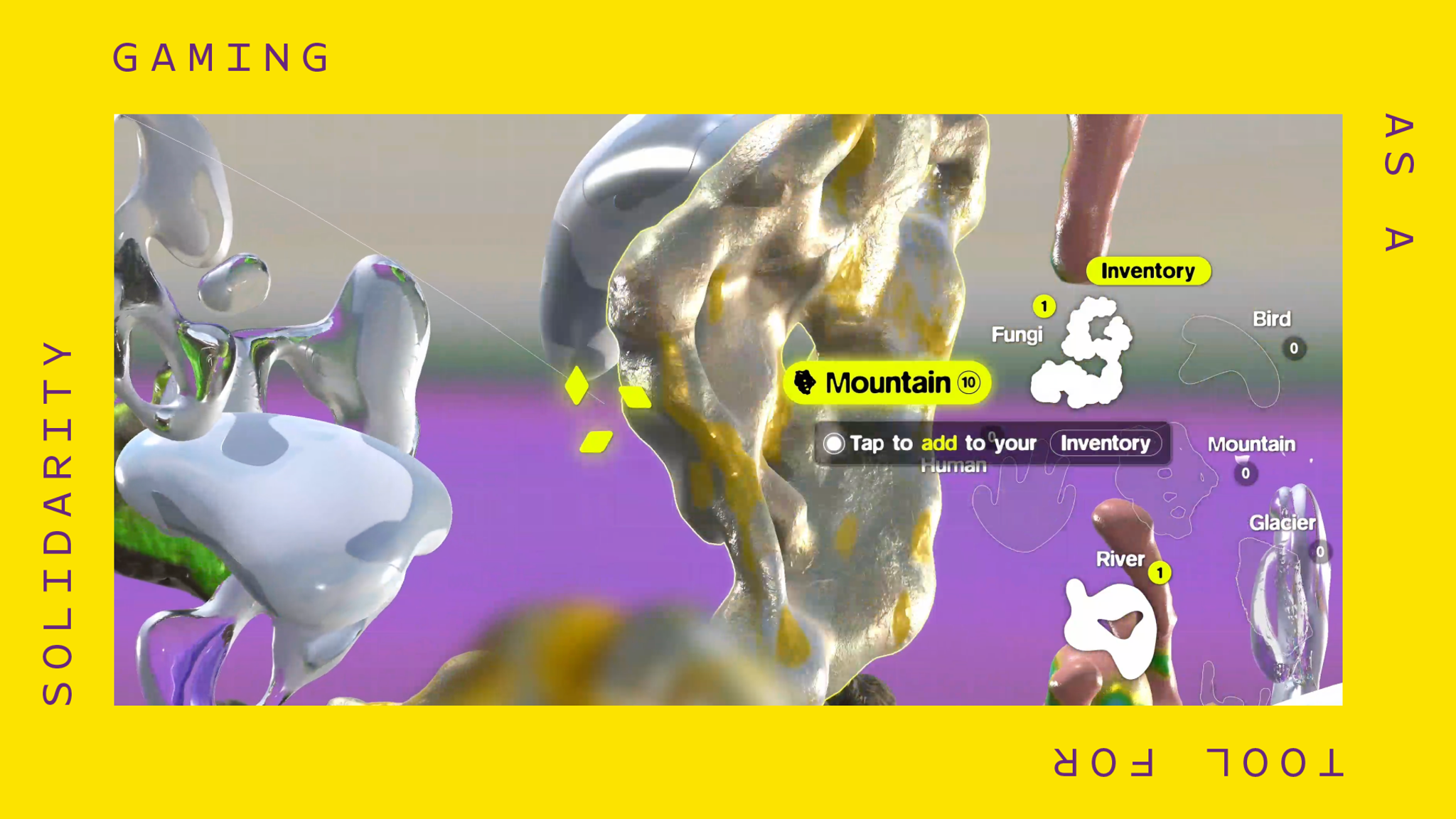
Ask yourself: how do we share wealth with non-human others – such as animals, plants and ecosystems – in the natural world? Should a river claim legal compensation for the factory that pollutes it? Should non-humans receive Universal Basic Services, and what would that look like?
Through a unique collaboration between UCL’s Institute for Global Prosperity and digital art director Studio DVTK, Sharing Prosperity is an interactive gaming experience where users navigate an immersive futuristic world to shape their vision of what the relational economy – the connections and relationships between humans, non-human species and all other aspects of the living and natural world – might look and feel like in 2040, for the survival of all species.
So, how do we embrace solidarity and practice radical collaboration for the prosperity of all species? At the UCL Institute for Global Prosperity, we undertake research that seeks to dramatically improve the quality of life for all, highlighting the critical importance of nature-based solutions and the natural environment in tackling climate change, biodiversity loss and the challenges of the 21st century. We move beyond academia to engage with decision-makers, local communities, multifaceted stakeholders and the arts.
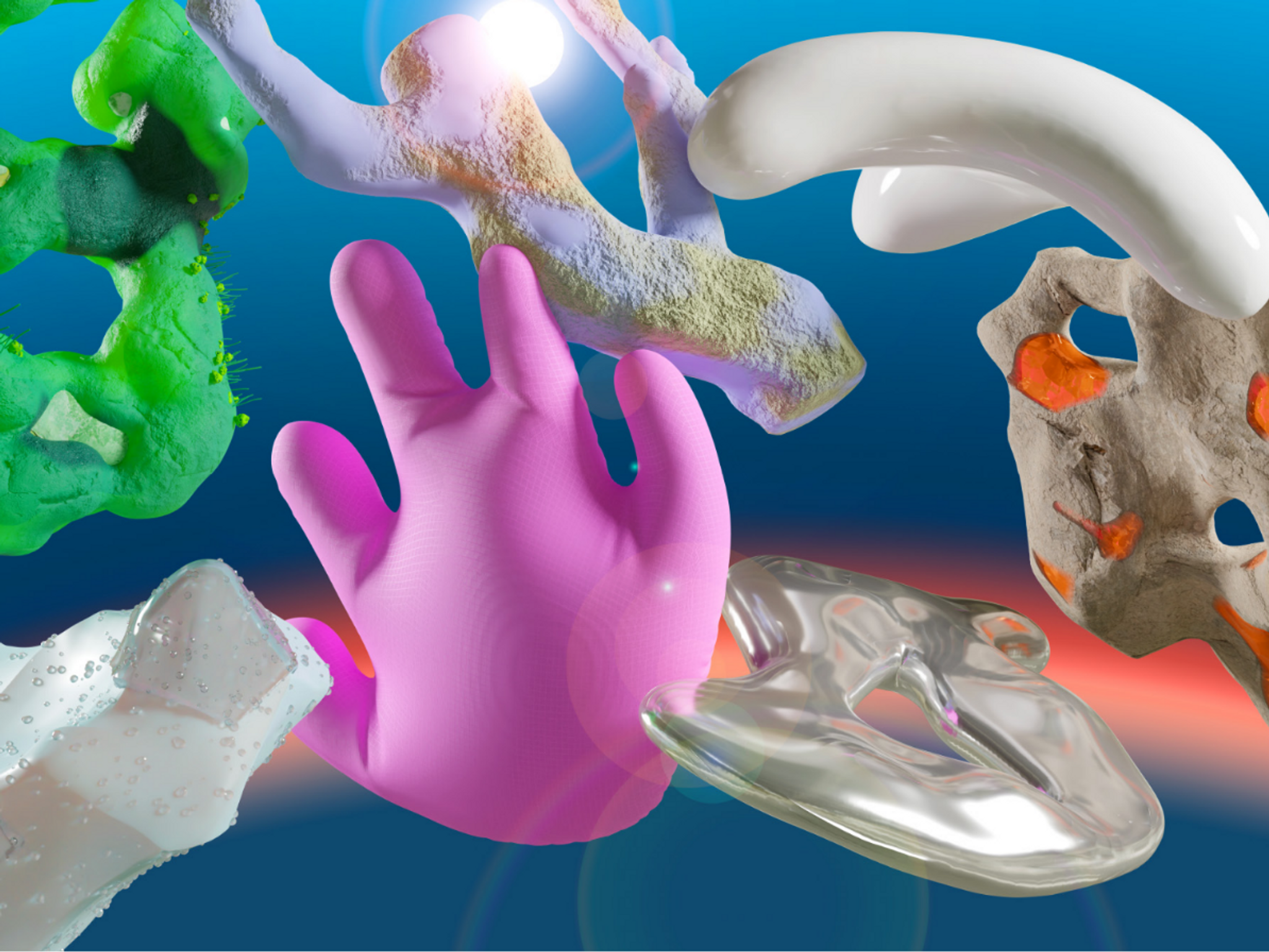
Characters from the Sharing Prosperity interactive gaming experience. Image: © DVTK
How do we embrace solidarity and practice radical collaboration?
Sharing Prosperity is based on the importance of the natural world to our future. The game was exhibited – alongside 18 other climate-focused projects – as part of the Barbican Centre’s Our Time on Earth exhibition in summer 2022. It invites users to select from seven abstract characters (a tree, a fungus, a glacier, a mountain, a human, a river or a bird), and then to travel through an immersive online environment as that character. Throughout the game, users navigate interconnected pathways, learning facts about the different characters and linking them together to create a balanced ‘solidarity chain’ where all species thrive equally in an economy based on shared prosperity.
The concept of the game is to consider how we can distribute resources across all species – both human and non-human – through the premise of a relational economy, in which the primary currency is solidarity. In a world of shared prosperity, our solidarity is created from the relationships that we have with each other. The aim of the game is to not be overtly educational, but abstract and thought provoking, allowing users to experience new ways of thinking within an economy where wealth, justice and resources are distributed equally among all beings.
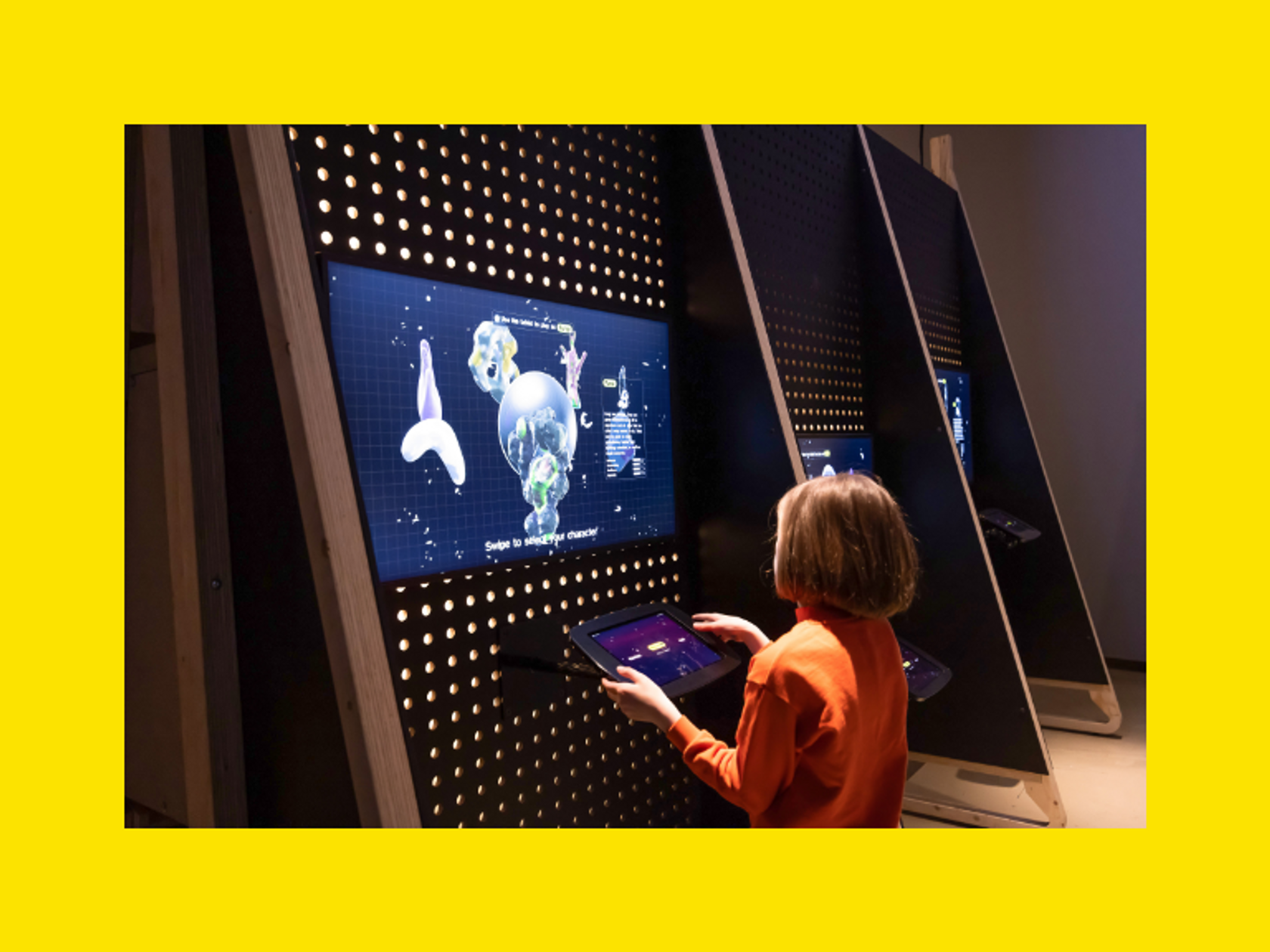
Sharing Prosperity in use at the Our Time On Earth exhibition at the Barbican Centre in London, Summer 2022
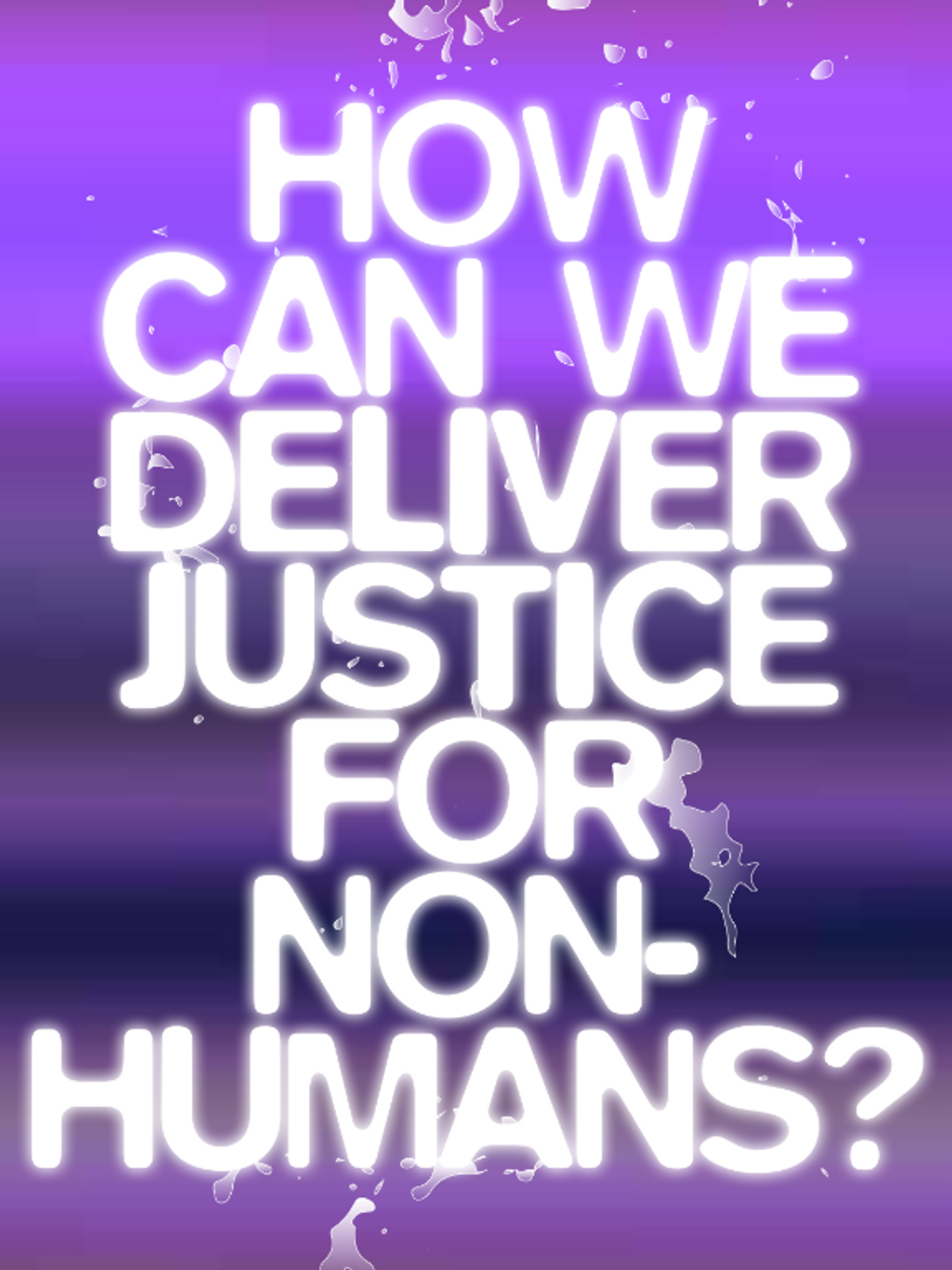
One of 19 "provocation" questions projected onto screens alongside the Sharing Prosperity experience at the Our Time On Earth exhibition at the Barbican Centre in London, Summer 2022. Image: © DVTK
At the end of the game, users are given a unique QR code to view their character’s solidarity chain, allowing them to see where their character sits among all other beings, alongside others who have played the game. This creates an ever-expanding database of stories and narratives where one experiences the world from another's point of view, subsequently learning how we can share resources equitably.
Our oldest technology is language itself. This game – which we hope to see made into an online, open access, educational resource for schools – allows us not only to go beyond the use of language to play with other dimensions of our senses, but also to reconsider the way in which we engage with others by taking on their perspectives. How can we create new relationships that recognise we are indebted to each other, but in different ways, and take our economy forward into one based on Indigenous principles and ways of respecting other beings, both living and inorganic?
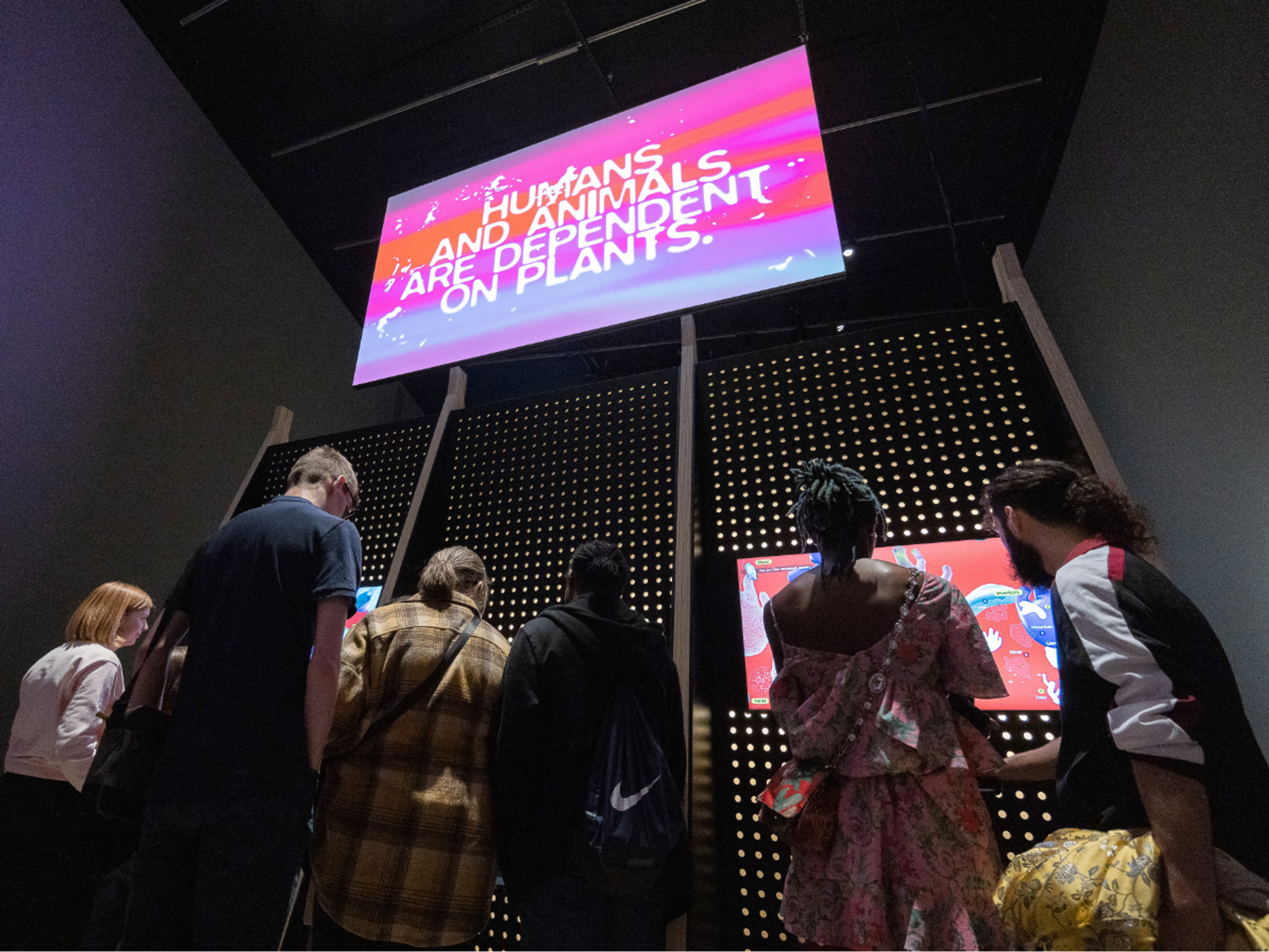
Sharing Prosperity in use at the Our Time On Earth exhibition at the Barbican Centre in London, Summer 2022
Our futures are interconnected
We must focus on more than just human diversity if we are to nurture a more equitable world and tackle the immense challenges we are facing today. In turn, this requires new forms of thinking, new methods of engagement, and new types of collaborations. Through explorative gaming, Sharing Prosperity highlights how human and planetary health and wellbeing are all deeply intertwined.
Our futures are interconnected. We will only be able to continue if we can find new ways of collaboration and new ways of caring.
Sharing Prosperity played as part of Our Time on Earth (5 May – 29 August 2022) at the Barbican Centre, London. In 2023, it will be exhibited at the Musée de la civilisation in Quebec City, Canada, before embarking on an international tour.
Further resources:
Find out more about the collaboration between the UCL Institute for Global Prosperity and DVTK on Sharing Prosperity
Read more about Sharing Prosperity at the Our Time on Earth exhibition
